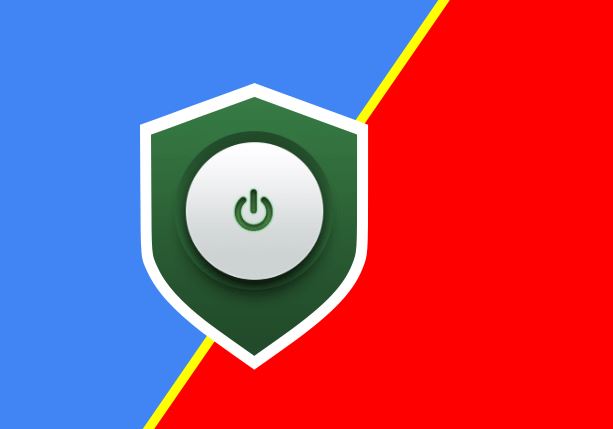Alright, let’s tackle this head-on, Is Encrypted DNS an Alternative to VPN?. If you’re wondering whether encrypted DNS can replace a VPN, you’re not alone. It’s a question that often pops up when people are looking for ways to beef up their online privacy. But here’s the deal: while both encrypted DNS and VPNs work to protect your internet activity, they do so in very different ways. And no, they’re not quite interchangeable.
But hey, let’s not just jump to conclusions—let’s explore why.
What Is Encrypted DNS, Anyway?
So, imagine this: you’re typing in a website’s address, like “example.com.” But here’s the thing—your computer doesn’t actually understand “example.com.” It needs to translate that into an IP address, a string of numbers that’s unique to each site. That’s where DNS (Domain Name System) comes in. Normally, these requests—like, “Hey, where’s example.com?”—are sent out in plain text. And plain text means anyone, like your ISP or even hackers, could potentially see which sites you’re trying to visit.
Encrypted DNS steps in here, making sure that these requests are encrypted, so prying eyes can’t peek at where you’re heading.
Sounds good, right? Well, sure. But it’s just one layer of protection.
How Does a VPN Work Differently?
Now, a VPN (Virtual Private Network) takes things up a notch. When you use a VPN, not only is your DNS request encrypted, but all of your internet traffic is routed through a secure tunnel. This means everything you do online—whether you’re browsing, downloading, or even streaming—is hidden. Plus, it masks your IP address, so it looks like you’re accessing the internet from a different location altogether.
In short, a VPN hides both the “what” and the “where” of your internet activity. So, if someone tries to spy on your traffic, they’ll hit a wall of encryption.
The Real Question: Can Encrypted DNS Replace a VPN?
Alright, so where does this leave us? Can you just use encrypted DNS instead of a VPN? Well, not quite. Here’s why:
- Scope: Encrypted DNS only protects your DNS queries—basically, the addresses of the websites you visit. It doesn’t encrypt the actual data you’re transmitting to and from those sites. A VPN, on the other hand, encrypts everything. From the moment you connect, all your online activity is cloaked in encryption.
- Privacy: While encrypted DNS stops your ISP or network provider from seeing where you’re going, it doesn’t hide your IP address. This means that websites can still see where your requests are coming from. A VPN, however, makes it look like you’re browsing from a completely different location.
- Use Case: If all you care about is stopping your ISP from tracking which sites you’re visiting, then encrypted DNS could be enough. But if you’re looking for more privacy, like masking your IP address, bypassing geo-restrictions, or fully encrypting your web traffic, then you’ll want a VPN.
When Should You Use Encrypted DNS?
Let’s say you don’t want to bother with a VPN for whatever reason—maybe you don’t want the potential slowdowns that can come with routing all your traffic through an extra server. In that case, encrypted DNS might be the simpler solution. It’s less resource-intensive and won’t affect your connection speed the way a VPN might.
If your main concern is that your ISP or network provider might be logging your web traffic, encrypted DNS is a good first step. It blocks their ability to see which sites you’re visiting, so if that’s your primary worry, it might be all you need.
When a VPN Is the Better Choice
But, if you’re serious about privacy and security, a VPN is hard to beat. It’s especially useful if you’re:
- On public Wi-Fi: You know those free Wi-Fi spots at coffee shops? They’re a hacker’s dream. A VPN encrypts your entire connection, making sure no one can snoop on your data while you’re sipping your latte.
- Bypassing geo-blocks: Want to access streaming services or content that’s locked to certain countries? VPNs make this easy by letting you spoof your location.
- Looking for total anonymity: If you want your internet traffic hidden from your ISP, the websites you visit, or even the government, a VPN is your best bet. It creates a private tunnel for all of your data.
Can You Use Both?
Now here’s a little secret—not only can you use both encrypted DNS and a VPN, but it’s also a great idea. Many VPNs these days include encrypted DNS as part of their service, giving you an extra layer of protection. You get the benefit of total traffic encryption with the added bonus of keeping those DNS queries private.
So, it’s not really a choice of one or the other. It’s more like a team-up for ultimate privacy.
Wrapping It Up: Which Should You Choose?
If your main goal is to stop your ISP from tracking which websites you visit, then encrypted DNS could be a decent, lightweight solution. It’s easy to set up and won’t slow you down.
But if you’re looking for more comprehensive privacy—like hiding your IP address, encrypting all your internet traffic, and even bypassing regional blocks—then a VPN is definitely the way to go. In fact, using both encrypted DNS and a VPN together offers the best of both worlds.
So, what’s it going to be? Are you after the ease of encrypted DNS or the full protection of a VPN? It all depends on what you’re looking to protect.
Whichever path you take, just know—you’re already ahead of the curve by caring about your online privacy!
Read Next:
25 Best Chrome VPN Extensions to Unlock Sites





